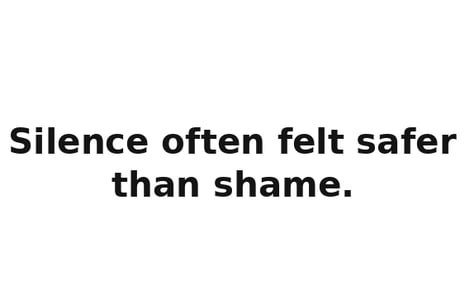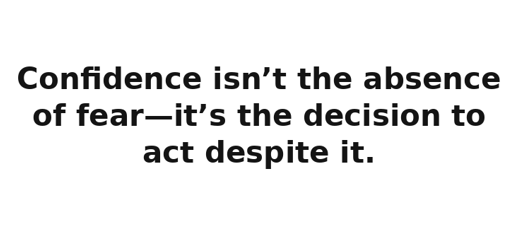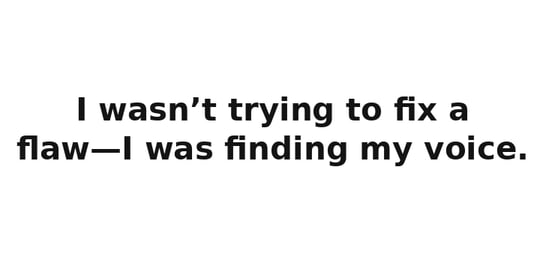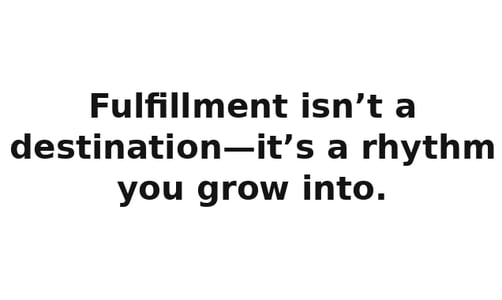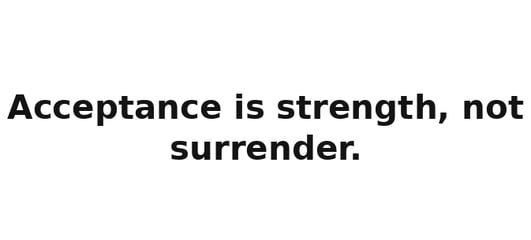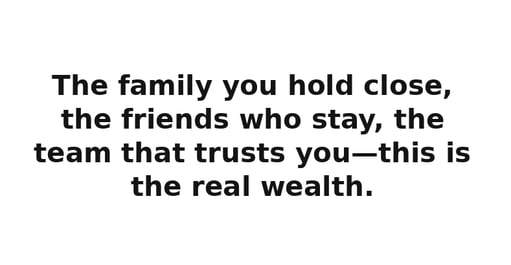Public Speaking & Soft Skills
Impact on individuals, shared learnings
Why Public Speaking is the Best Investment in Your Career Growth.
Investing in public speaking is one of the most strategic decisions you can make for your career development. The ability to articulate ideas clearly and confidently not only enhances personal growth but also opens doors to leadership opportunities and professional advancement. Here's why public speaking stands out as a pivotal investment in your career
1. Enhances Communication Skills
Effective communication is the bedrock of any successful career. Public speaking compels you to organize your thoughts, tailor your message to diverse audiences, and convey ideas succinctly. These skills are transferable to various professional scenarios, from team meetings to client negotiations. As highlighted by Toastmasters International, "By improving your communication, public speaking, and leadership skills, you are building a better version of yourself."
2. Builds Confidence
Regular practice in public speaking settings, such as those provided by organizations like Toastmasters, helps in overcoming the common fear associated with speaking in front of groups. This repeated exposure not only diminishes anxiety but also builds self-assurance, enabling you to tackle other challenges in your professional life with greater confidence. As noted in a Toastmasters article, "Preparing will build your confidence when you are in high-pressure situations such as interviewing for a job, giving a speech, making a sale or communicating..."
3. Demonstrates Leadership Potential
The ability to speak effectively in public is often associated with leadership. When you articulate your ideas clearly, you position yourself as a thought leader and someone capable of guiding teams. This perception can lead to increased responsibilities and promotions. An article from Toastmasters International emphasizes that confidently speaking in public is closely associated with leadership ability, serving as a quick path to leadership roles.
4. Expands Professional Network
Engaging in public speaking events, workshops, and clubs introduces you to professionals from various fields. These interactions can lead to collaborations, mentorships, and new opportunities. Toastmasters International, for instance, offers a global network that can significantly broaden your professional connections.
5. Enhances Critical Thinking and Quick Decision-Making
Public speaking often involves thinking on your feet, especially during Q&A sessions or impromptu speeches. This practice sharpens your ability to analyze situations quickly and respond appropriately—an invaluable skill in high-pressure work environments. As highlighted by Toastmasters, "Practice impromptu speaking. Test your skills in business meetings, speaking with a bank teller, or social events."
6. Improves Persuasion Skills
The art of persuasion is central to public speaking. Mastering this art enables you to influence others' opinions and decisions, be it pitching a project to stakeholders or convincing a team to adopt a new strategy. These skills are crucial for career advancement and effective leadership.
7. Provides a Competitive Edge
In a competitive job market, possessing strong public speaking skills can set you apart from other candidates. Employers value individuals who can represent the company confidently, communicate with clients effectively, and lead presentations. According to a Toastmasters International report, "Communication and leadership rank as two of the top five most in-demand skills in today's competitive job market."
8. Facilitates Personal Development
Beyond professional benefits, public speaking contributes to personal growth. It encourages you to step out of your comfort zone, confront and overcome fears, and develop resilience. This personal development positively impacts various aspects of your life, leading to a more fulfilling career.
In conclusion, investing time and effort into developing public speaking skills yields substantial returns in your career. It enhances your ability to communicate effectively, boosts confidence, showcases leadership potential, and provides a competitive edge in the professional arena. Organizations like Toastmasters International offer supportive environments to cultivate these skills, making the journey both enriching and enjoyable. I am one of the Confident Product of this organization.
1. The Paradox of Perfection: Why Imperfection is the Ultimate Freedom
Perfection is a deceptive ideal - something we chase relentlessly but never quite attain. For years, I measured success in flawless execution, whether in public speaking, career milestones, or relationships. But over time, I realized:
✔️ Perfection is an illusion - progress is real.
✔️ Fear of imperfection delays action.
✔️ The pursuit of perfection can become a self-imposed prison.
💡Key Insight: True mastery isn’t about being perfect; it’s about embracing imperfection and growing through experience
2. Eliminating Panic: The Most Overrated Emotion
Panic is the enemy of clarity. When faced with setbacks, most people react with fear, overthinking, or worst-case scenarios. But panic never solves anything - it only makes things worse.
🚀 How to Eliminate Panic:
✔️Pause & Assess: Is this problem real or just exaggerated in my mind?
✔️ Control What You Can: Some things are outside your control. Focus on your response.
✔️ Adopt a Problem-Solving Mindset: Instead of worrying, ask: What’s the next step?
💡Key Insight: “Some terrible things happened in my lifetime—a few of which actually happened.” – Benjamin Franklin
3. The Ripple Effect: How Social Connections Shape Who We Become
The people we spend time with don’t just influence us - they define us. Our thoughts, habits, and values are shaped by our closest relationships.
✔️ Surround yourself with learners → You’ll grow.
✔️ Be around health-conscious people → You’ll become healthier.
✔️ Engage with optimistic individuals → You’ll find joy in challenges.
💡 Key Insight: Choose your circle wisely. The right people amplify your strengths and minimize your weaknesses.
4. The Value Principle: Why We Treat Things Differently
A friend of mine constantly misplaced his pens - until I suggested he buy the most expensive pen he could afford. Suddenly, he never lost another pen. Why? Because we take care of what we value.
🚀 Applying the Value Principle:
✔️ Value your health → You’ll be mindful of your habits.
✔️ Value your relationships → You’ll nurture them.
✔️ Value your time → You won’t waste it.
💡 Key Insight: Carelessness isn’t the problem - lack of perceived value is.
5. The Economics of Connection: Why the More You’re Connected, the More You Prosper
Whether in business, finance, or social life, those who build meaningful connections progress faster and further.
✔️ Nations that trade more → Grow faster.
✔️ Professionals with strong networks → Get more opportunities.
✔️ Socially active individuals → Enjoy better mental well-being.
💡 Key Insight: Success isn’t just about what you know - it’s about who you connect with and how you nurture those relationships.
6. Knowing When to Reinvent: Lessons from Business and Life
Businesses that fail to evolve—fail, period. The same applies to individuals. The key is detecting the fault lines before disruption happens.
🚀 Signs It’s Time to Reinvent:
✔️ You feel stagnant → Your old methods aren’t working anymore.
✔️ Your industry is shifting → Are you adapting fast enough?
✔️ You’re resisting change → Fear of failure is holding you back.
💡Key Insight: Reinvention is a proactive strategy—not a reactive necessity.
Philosophy & Life Perspectives
societal, historical, and cultural aspects
Article on ESG Ethics and Future of Finance
ESG, Ethics, and the Future of Financial Leadership: A CFO’s Perspective
The financial landscape is undergoing a seismic shift. Environmental, Social, and Governance (ESG) considerations are no longer just a corporate checkbox—they are defining the future of financial leadership. As a Fractional CFO and UAE Corporate Tax & ESG-Driven Finance Strategist, I see this transformation firsthand. The role of financial leaders is evolving beyond traditional financial stewardship. Today, sustainability, ethics, and governance are not just regulatory requirements but essential pillars of long-term business resilience.
From Compliance to Competitive Advantage
Many businesses still view ESG as an obligation—a regulatory hurdle to clear. However, organizations that integrate ESG into their financial and strategic decision-making don’t just mitigate risk; they unlock opportunities. A CFO must champion ESG not as a cost center, but as a driver of sustainable value creation.
Take integrated reporting—the ability to connect financial performance with ESG outcomes. Investors and stakeholders increasingly demand transparency. The rise of frameworks like those proposed by sustainability standard-setters reflects this shift. Financial leaders must adapt, ensuring their financial strategies incorporate impact measurement, stakeholder engagement, and sustainability accounting.
Ethics: The Cornerstone of Financial Leadership
Ethics in finance has long been debated, but with ESG taking center stage, it has become a strategic imperative. Companies with strong ethical cultures tend to outperform—not just in compliance but in building trust with investors, customers, and employees. A CFO must embed ethics into financial strategy—not just react to regulatory changes but proactively foster a culture where doing the right thing is a business advantage.
Ethical decision-making is no longer an isolated HR function; it is a financial imperative. Every decision regarding capital allocation, reporting transparency, and governance structures shapes an organization’s ethical DNA. Financial leaders must set the tone—ensuring integrity is ingrained in financial strategy, risk management, and long-term planning.
New Skills for a New Era of Finance
The future of financial leadership demands cross-functional expertise. A CFO can no longer operate in a silo focused solely on balance sheets and cash flows. ESG-driven finance requires an understanding of:
✅ Sustainability Accounting – Measuring and reporting ESG impact alongside financial performance
✅ Stakeholder Engagement – Balancing investor expectations with broader societal concerns
✅ Impact Measurement – Quantifying the long-term benefits of ESG initiatives
The traditional metrics of financial success are evolving. Investors are demanding a shift from short-term profitability to long-term value creation—one that considers financial, environmental, and social impacts together. Financial leaders who fail to adapt risk being left behind in a world where governance and accountability matter as much as revenue growth.
A Call to Action: CFOs as ESG Catalysts
Financial leadership in the 21st century isn’t just about maximizing short-term profits—it’s about shaping a sustainable, ethical business future. CFOs have a once-in-a-generation opportunity to embed ESG into financial strategy, leading from the front in corporate responsibility and governance.
This is not just a shift—it’s a transformation. And those who embrace it won’t just survive; they will lead.
Lessons from Hindu Philosophy for the Modern World
The world today stands at the crossroads of technological advancement, socio-political turmoil, and existential dilemmas. In this fast-paced, hyper-connected age, ancient wisdom often seems distant and outdated. Yet, the timeless principles of Hindu Sanatan Dharma hold profound lessons for the modern world, offering insights that transcend religious boundaries and provide pragmatic solutions for contemporary challenges.
1. The Principle of Dharma: Duty Over Desire
Dharma, often translated as duty or righteousness, is the cornerstone of Hindu philosophy. In a world driven by individual ambition and material gains, the concept of dharma reminds us of our responsibility towards society, family, and ourselves. Whether it is corporate governance, environmental sustainability, or personal ethics, adherence to one’s dharma ensures a harmonious and balanced life.
In professional settings, this could mean prioritizing integrity over short-term gains. In governance, it translates into policies that uphold justice rather than populism. On a personal level, it signifies staying true to one’s principles despite temptations.
2. Karma: Action and Consequence
The law of karma—cause and effect—reminds us that every action has consequences. In today’s world, where people often seek shortcuts and instant gratification, karma underscores the importance of mindful actions. Whether in business, relationships, or politics, the energy we put into the world returns to us.
This principle is particularly relevant in the digital age, where misinformation, cyberbullying, and unethical business practices thrive. By being mindful of our words and actions, we create a world that is not only just but also sustainable.
3. Yoga and Balance: Physical, Mental, and Spiritual Well-Being
The modern world glorifies hustle culture, often at the cost of mental and physical well-being. Hindu philosophy, through the practice of yoga, emphasizes balance—between work and rest, ambition and contentment, material pursuits and spiritual growth.
The integration of meditation and mindfulness into daily life, as prescribed in Hindu scriptures, is now backed by scientific research. These practices not only reduce stress but also enhance productivity, emotional intelligence, and overall well-being.
4. Vasudhaiva Kutumbakam: Universal Brotherhood
In an era marked by division—be it racial, religious, or ideological—the ancient Hindu concept of Vasudhaiva Kutumbakam (The world is one family) is a much-needed antidote. It teaches inclusivity, compassion, and collective progress over individualistic pursuits.
Geopolitical conflicts and economic disparities could be addressed more effectively if nations embraced this idea, fostering cooperation rather than competition. At an individual level, it promotes empathy and kindness in daily interactions.
5. Detachment and Acceptance: The Wisdom of Bhagavad Gita
One of the most profound lessons from Hindu philosophy is Nishkama Karma—acting without attachment to results. The Bhagavad Gita advises performing one’s duty with dedication while remaining detached from the outcomes. In a world obsessed with validation—social media likes, professional recognition, financial success—this principle teaches resilience and peace.
Detachment doesn’t mean indifference; rather, it means doing one’s best without being emotionally consumed by the result. This mindset is invaluable in professional failures, personal losses, and even creative pursuits, as it fosters inner stability and reduces anxiety.
6. Adaptability: The Eternal Relevance of Sanatan Dharma
Sanatan Dharma, meaning the ‘eternal order,’ is not rigid dogma but a dynamic way of life that evolves with time. Unlike rigid belief systems, Hindu philosophy accommodates multiple perspectives, debates, and interpretations. This adaptability is crucial in today’s rapidly changing world.
Whether it’s embracing new technologies, navigating changing social norms, or responding to global crises, the ability to evolve while staying rooted in fundamental values is key to sustainable progress.
Conclusion: Ancient Wisdom for a Better Tomorrow
Hindu philosophy is not about rituals or dogma; it is a blueprint for a fulfilling, ethical, and balanced life. Its lessons on duty, action, well-being, inclusivity, resilience, and adaptability are more relevant today than ever before.
If the modern world integrates these ancient principles, we can foster a society that is not just technologically advanced but also ethically sound, emotionally intelligent, and spiritually enriched. Perhaps, the ultimate lesson from Hindu philosophy is that true progress is not just outward expansion but inward evolution.
The Role of Finance in Building a Just and Equitable Society
Finance is more than numbers, transactions, and balance sheets—it is the engine that fuels economic progress, innovation, and societal well-being. The decisions made within the financial sector determine who has access to resources for building wealth, launching businesses, and funding critical initiatives. In a world increasingly focused on inclusivity and equity, finance has a moral and strategic responsibility to bridge opportunity gaps rather than widen them.
Finance as a Catalyst for Access and Opportunity
At its core, finance is about facilitating capital flows. Whether through banking, investing, or lending, financial institutions have the power to shape economic mobility. Historically, access to financial resources has been uneven, favoring the privileged while excluding marginalized communities. Today, there is growing recognition that financial models must be designed to enable broader participation in wealth creation.
Financial leaders must critically examine how their investment strategies, lending criteria, and risk assessments impact equity. Decisions that seem purely economic—such as credit approval algorithms or venture capital funding trends—can have deep societal consequences. By proactively addressing systemic biases in financial systems, finance can become a true enabler of opportunity.
Inclusive Investing: Closing the Opportunity Gap
The rise of inclusive investing reflects a shift toward leveraging capital to support underserved communities, diverse entrepreneurs, and affordable housing initiatives. This movement recognizes that financial returns and social impact are not mutually exclusive. Impact investors, ESG-focused funds, and community development financial institutions (CDFIs) are proving that investments can be both profitable and equitable.
From microfinance institutions empowering small businesses to sustainability-linked bonds funding essential infrastructure, finance is evolving beyond short-term profits to long-term societal value. Investors and financial institutions that prioritize economic inclusion are not only driving positive change but also positioning themselves for sustained growth in a rapidly evolving market.
The Rise of Stakeholder Capitalism
For decades, the shareholder primacy model dominated corporate finance, emphasizing profit maximization above all else. This model is now being challenged by stakeholder capitalism, which considers the well-being of all stakeholders—employees, customers, communities, and the environment—rather than focusing solely on shareholder returns.
The transition to stakeholder-oriented finance demands a shift in how financial institutions measure success. Rather than extracting value from society, finance must become a force that actively creates value for communities. This means integrating social impact metrics into financial decision-making, reassessing the risks of unchecked capitalism, and ensuring financial models align with broader economic well-being.
Ethics and Purpose as Competitive Advantages
In an increasingly transparent world, ethics and purpose are no longer optional—they are competitive differentiators. The financial industry has witnessed its fair share of scandals, from predatory lending practices to corporate fraud, eroding public trust. Restoring confidence in finance requires an unwavering commitment to ethical conduct, social responsibility, and long-term value creation.
Financial institutions that prioritize ethical leadership and governance are more likely to attract top talent, build enduring client loyalty, and maintain long-term profitability. Employees, customers, and investors are increasingly aligning themselves with institutions that reflect their values. A financial system built on trust, transparency, and accountability is essential for fostering a just and equitable society.
Finance’s Role in Shaping a Fairer Future
The financial sector wields immense power over societal outcomes. From influencing corporate behavior to shaping investment trends, finance has the ability—and the obligation—to drive positive change. A just and equitable society is not built through policy alone; it requires an economic system that prioritizes inclusivity, ethical decision-making, and long-term sustainability.
To realize this vision, financial leaders must embrace robust governance, purpose-driven finance, and stakeholder accountability. This is not just a moral imperative; it is an economic necessity. Institutions that fail to evolve will face regulatory pressures, reputational risks, and diminished public trust. On the other hand, those that lead with integrity and inclusivity will not only thrive but will also contribute to a financial system that works for everyone.
Final Thought
Finance has long been seen as a driver of economic growth, but its true potential lies in being a force for equity and progress. The transition to a fairer financial system is already underway, and financial leaders who recognize this shift will be at the forefront of shaping a more inclusive, resilient, and just world. The question is no longer whether finance should contribute to societal well-being—it is how boldly and effectively it will rise to the challenge.

